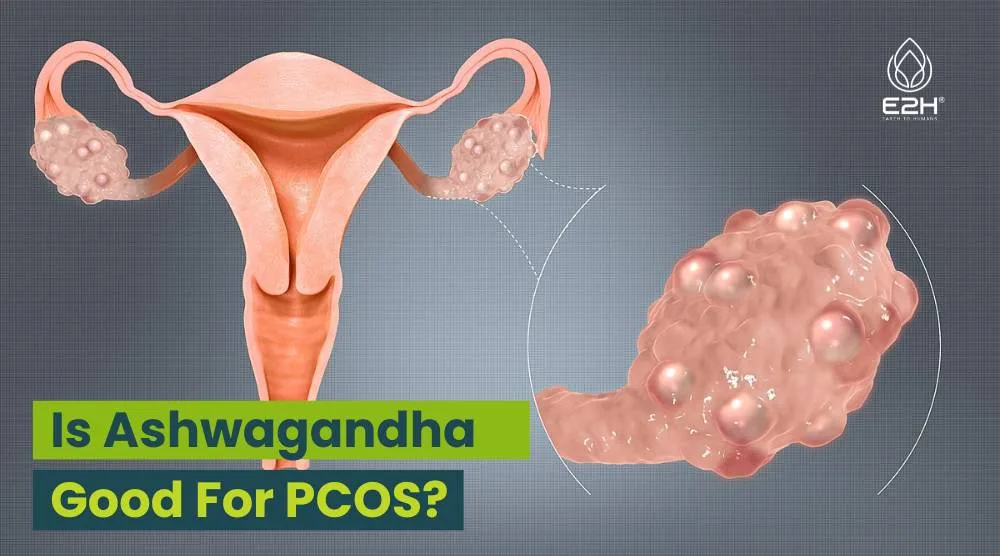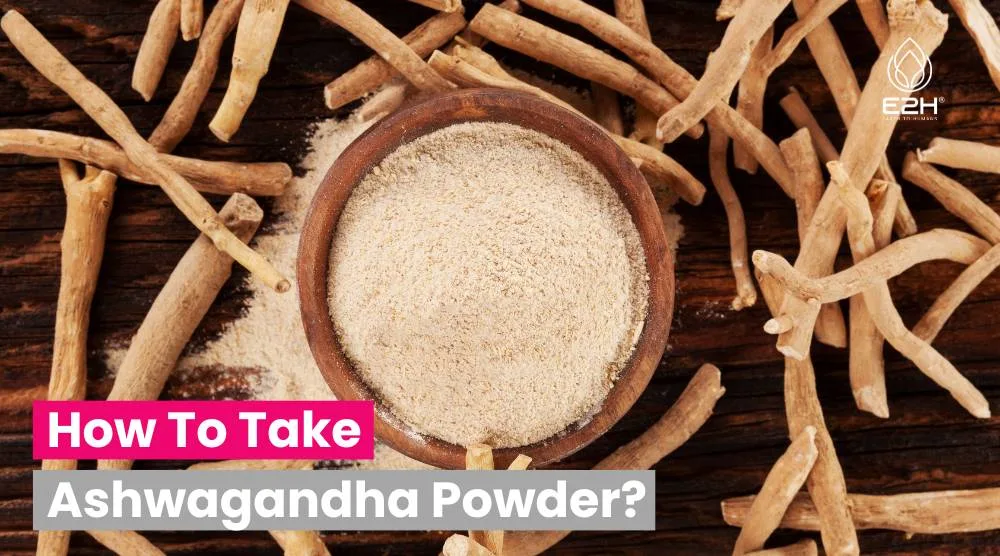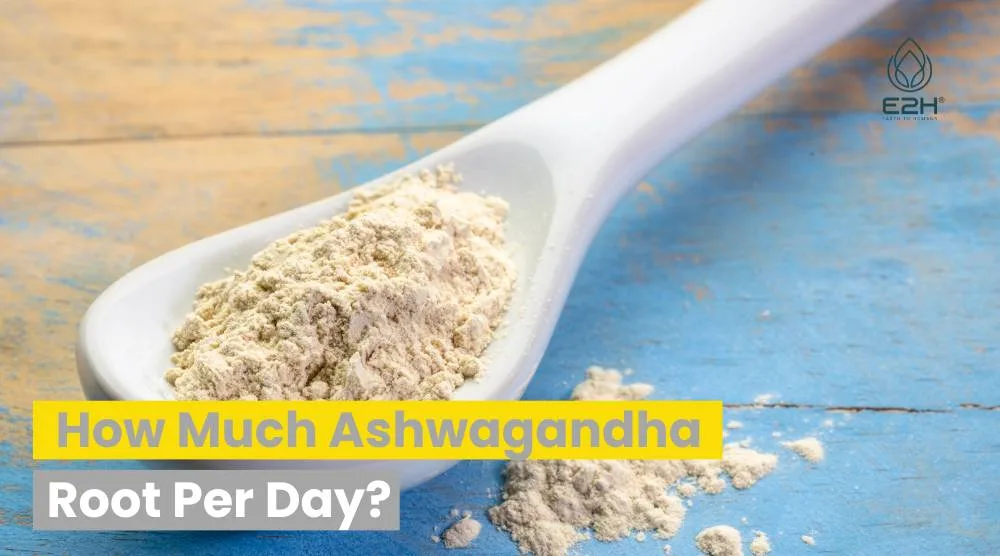Is Ashwagandha Good For PCOS: Ashwagandha may benefit PCOS by reducing stress, balancing hormones, and improving insulin resistance. However, its effectiveness varies per individual.
Curious about how Ashwagandha can help with PCOS? Read on to discover its potential benefits, how it works, and what you need to know before trying it.
What is PCOS, and why is it considered a challenge?
Polycystic Ovary Syndrome (PCOS) is a hormonal disorder common among women of reproductive age. It is characterized by irregular menstrual periods, excessive androgen levels, and polycystic ovaries. Women with PCOS may experience infertility, weight gain, acne, hair growth on the face and body, and an increased risk of developing other health issues like diabetes and heart disease. Managing PCOS is challenging due to its complex nature and varied symptoms, which can significantly impact a woman’s physical and emotional well-being.

Can Ashwagandha be beneficial for managing PCOS symptoms?
Ashwagandha, a prominent herb in Ayurvedic medicine, shows promise in managing PCOS symptoms. Its adaptogenic properties may help in reducing stress and anxiety, common issues in PCOS. Additionally, Ashwagandha is known for its potential in balancing hormones and improving insulin resistance, which are key concerns in PCOS. By addressing these underlying issues, Ashwagandha could play a supportive role in alleviating some of the symptoms associated with PCOS, such as irregular menstrual cycles and weight gain.
What are the potential benefits of Ashwagandha in addressing hormonal imbalances related to PCOS?
Ashwagandha may offer several benefits in addressing hormonal imbalances in PCOS. It is believed to regulate the endocrine system, which can help in normalizing hormone levels, particularly reducing elevated androgen levels common in PCOS.
This normalization can lead to improved menstrual regularity and potentially reduce symptoms like acne and hair growth. Additionally, Ashwagandha’s potential in enhancing insulin sensitivity could indirectly aid in balancing other hormones disrupted by PCOS, contributing to overall hormonal harmony.
Is Ashwagandha’s role in hormonal harmony a myth or a proven scientific reality?
The role of Ashwagandha in achieving hormonal harmony is not just a myth but is supported by some scientific evidence. Studies have shown that Ashwagandha can influence the endocrine system, which is responsible for hormone production and regulation. It particularly seems to impact cortisol levels, a stress hormone, and may also affect insulin, a key hormone disrupted in PCOS. While more research is needed for conclusive evidence, current studies suggest a positive correlation between Ashwagandha intake and hormonal balance.
Can Ashwagandha bring calm in the face of stress and anxiety linked to PCOS?
Ashwagandha is well-known for its stress-reducing properties, which can be particularly beneficial for women with PCOS, who often experience heightened stress and anxiety. This herb works by regulating the body’s stress response, potentially lowering cortisol levels. Its calming effect on the nervous system can lead to reduced feelings of anxiety and promote a sense of well-being. This reduction in stress and anxiety can be crucial in managing PCOS, as stress can exacerbate many of the syndrome’s symptoms.

How does Ashwagandha offer new hope in tackling insulin resistance associated with PCOS?
- Enhancing Insulin Sensitivity: Ashwagandha may improve the body’s response to insulin, making it more effective in lowering blood sugar levels.
- Reducing Blood Sugar Levels: Studies suggest that Ashwagandha can help in reducing blood sugar levels, which is crucial for managing insulin resistance.
- Balancing Hormones: By influencing hormonal activity, Ashwagandha might indirectly aid in stabilizing insulin levels.
- Stress Reduction: Since stress can exacerbate insulin resistance, Ashwagandha’s stress-reducing properties can indirectly contribute to better insulin management.
Is Ashwagandha recognized as a weight-loss wonder for addressing PCOS-related obesity?
While Ashwagandha is not primarily known as a weight-loss supplement, it offers indirect benefits that can aid in weight management for those with PCOS. Its potential to reduce stress and balance hormones can indirectly influence weight. Stress is linked to weight gain, and by lowering stress hormones like cortisol, Ashwagandha might help in controlling stress-related weight gain. Additionally, its possible role in improving insulin sensitivity can also contribute to weight management, as insulin resistance is a common factor in PCOS-related obesity.
What influence does Ashwagandha have on thyroid function in individuals with PCOS?
- Stimulating Thyroid Hormones: Ashwagandha may help in stimulating the production of thyroid hormones, which are often imbalanced in PCOS.
- Balancing Hypothyroidism: It can be particularly beneficial for those with hypothyroidism, a common condition in PCOS, by normalizing thyroid hormone levels.
- Reducing Stress Impact on Thyroid: By mitigating stress, Ashwagandha can reduce the negative impact of stress on thyroid function.
- Enhancing Overall Endocrine Function: Ashwagandha supports the overall function of the endocrine system, which includes the thyroid gland.
How does Ashwagandha play a role in navigating fertility challenges linked to PCOS?
Ashwagandha may play a supportive role in addressing fertility issues associated with PCOS. By potentially balancing hormone levels, particularly reducing excess androgens, it can create a more favorable environment for ovulation and fertility. Its stress-reducing properties are also crucial, as high stress levels can negatively impact fertility. By lowering stress and possibly improving overall reproductive health, Ashwagandha could be a beneficial adjunct in managing fertility challenges in PCOS.

What are the recommended guidelines and precautions for optimal Ashwagandha dosage in PCOS management?
For managing PCOS with Ashwagandha, it’s important to adhere to recommended dosages and precautions. Typically, the standard dosage ranges from 450 to 500 milligrams per day. However, the exact dosage can vary based on individual needs and the form of Ashwagandha being used, whether it’s in powder, capsule, or liquid extract form. It’s crucial to start with a lower dose and gradually increase it, monitoring the body’s response. While Ashwagandha is generally safe, it’s important to be aware of any potential side effects and adjust the dosage accordingly.
FAQs
Does Ashwagandha help with hormonal balance in PCOS?
Yes, Ashwagandha may help balance hormones, particularly by reducing excess androgens in PCOS.
Can Ashwagandha improve fertility in women with PCOS?
Ashwagandha might improve fertility by regulating menstrual cycles and reducing stress.
Is Ashwagandha effective in reducing PCOS-related stress and anxiety?
Yes, its adaptogenic properties can help reduce stress and anxiety in PCOS.
Does Ashwagandha aid in weight management for PCOS patients?
It can indirectly support weight management by improving insulin sensitivity and reducing stress.
Can Ashwagandha regulate insulin levels in PCOS?
Ashwagandha may improve insulin sensitivity, helping to regulate blood sugar levels in PCOS.
Conclusion
Ashwagandha shows promising potential in managing various aspects of PCOS, from hormonal imbalances to stress relief. While it’s not a cure-all, its benefits in improving symptoms related to PCOS are worth considering. If you’re looking for natural ways to support your PCOS management, Ashwagandha could be a valuable addition to your routine. Remember, every step towards balance and health counts!














